Dielectric Tensor of Microtextured Squaraine Thin Films Obtained by Imaging Mueller Matrix Ellipsometry
Manuela Schiek, S. Funke, M. Duwe, P. H. Thiesen, K. Hingerl, F. Balzer.
di-Iso-Butyl-anilino-Squaraine SQIB
transition dipole moment (TDM) along long molecular axis
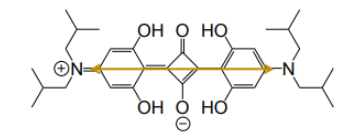
Frenkel excitons incl. Davydov splitting ≥ 2 inequivalent molecules per unit cell
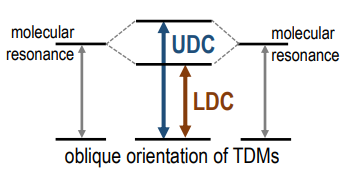
orthorhombic polymorph Pbcn CCDC 1567104 (4 inequivalent molecules in primitive unit cell) spincasting + thermal annealing @ 180°C formation of rotational domains with (110) orientation
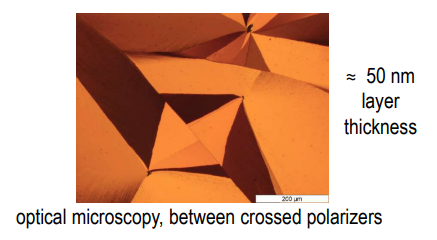
Davydov splitting: 4 inequivalent molecules = 4 Davydov bands (2x UDC & 2x LDC)
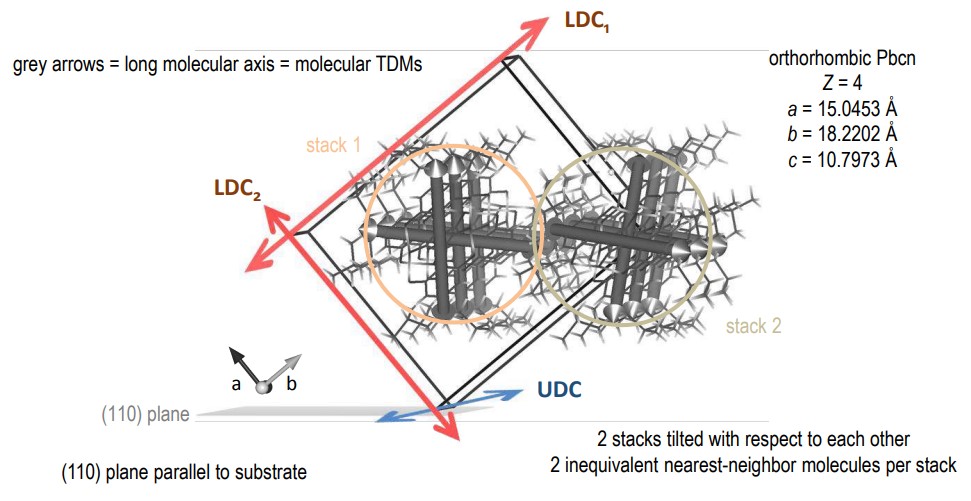
linear combination of TDMs within one stack + interstack combination
SUM => LDC1 along b-axis & LDC2 along a-axis
DIFFERENCE => UDC1 along c-axis & UDC2 = 0 (dark state)
diagonal tensor for orthorhombic crystals: optical indicatrix is congruent with crystallographic axes
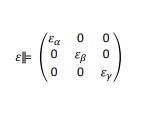
oscillator model to ensure Kramers-Kronig consistency negative real permittivity in vicinity of the strong resonances explains quasi-metallic shine of SQIB platelets
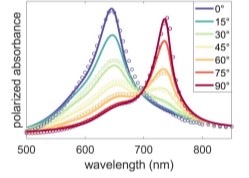
projected view onto (110) plane Davydov bands are polarized mutually perpendicular projected Davydov splitting ≈ 250 meV
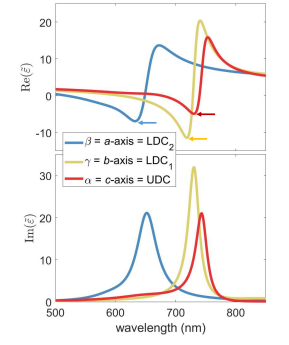
spatially resolved polarized absorbance measured (circles) is well reproduced by calculated (solid lines) spectra transfer matrix optical calculations using εa and projection of εB and εy onto (110) plane
UDC along c-axis, effective LDC along projected a-b-axes
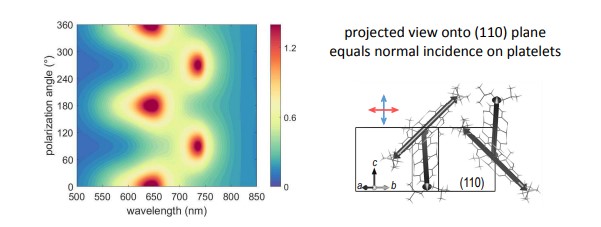
NanoFilm_EP4 imaging Mueller matrix ellipsometry system, Accurion GmbH, Göttingen
single compensator (PCSA-configuration): 11 normalized MM elements knife-edge illumination to suppress incoherent backside reflections collimated light beam spot diameter 1 mm lateral resolution 2 µm (λ = 400 nm) through microscopy objective, no focusing of incident beam selection of multiple ROIs reflection & transmission scans Theta Stage (TS): azimuthal Φ-rotation
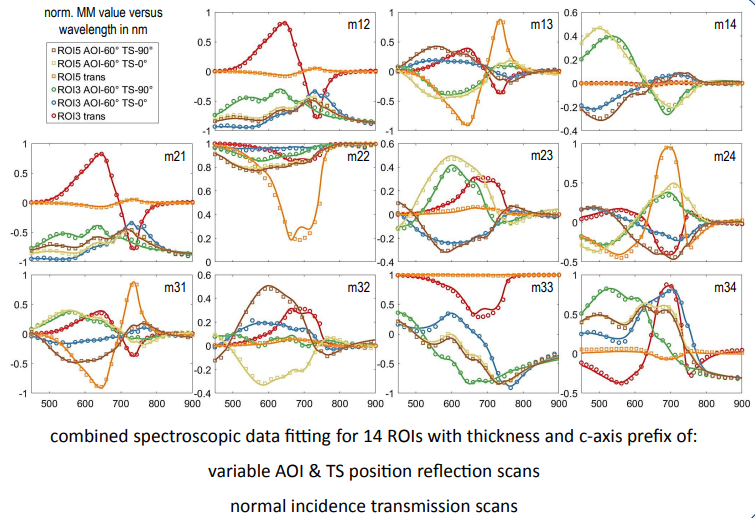
Funding & Acknowledgement
Linz Institute of Technology (LIT-2019-7-INC-313 SEAMBIOF) PRO RETINA Foundation (especially Franz Badura)
We are indebted to Dr. Matthias Schulz and Prof. Dr. Arne Lützen, University of Bonn, for providing SQIB powder.
